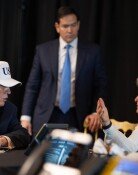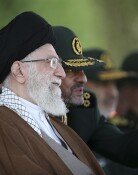[Editorial] Intl Cooperation Needed for Global Crisis
[Editorial] Intl Cooperation Needed for Global Crisis
Posted October. 06, 2008 08:57,
The U.S. House of Representatives finally passed the financial bailout bill, instilling a slight sense of relief in global financial markets from the looming credit crunch. The severe shortage of dollars in the Korean market was also relieved by government supply of five billion U.S. dollars through the Korea Export-Import Bank. The threat of a global financial crisis and ensuing credit crunch and economic slowdown shows that talk of a new financial ice age is no exaggeration. Nobody can tell for sure which country will take the brunt of the financial storm. Thus the Korean government must study and prepare thorough countermeasures against financial turmoil that could arise out of an exodus of international investors from Korea.
Almost all countries and their central banks are mobilizing every policy measure to prevent the effects of the global crisis from hitting their markets. But an individual response has limitations. The global financial system does not stop at border checkpoints. Thus, a strong international cooperation can help weather the storm. In this context, the Lee administrations move to convene a meeting of finance ministers from Korea, Japan and China is on the right path toward a solution.
The three countries have more than three trillion dollars in combined foreign reserves. As of August, China had 1.8 trillion dollars and Japan 997 billion dollars, making them the top two countries in the amount of foreign reserves. Korea ranks sixth with 239.6 billion dollars of reserves as of last month. Should the three economies agree on a detailed cooperative financial stabilization plan, this could help defend their domestic markets against attacks from international speculators. It will also be of great help to review beefing up cooperation in monitoring markets and exchanging opinions on things such as interest rates.
Since the 1997 economic crisis, China, Japan and Korea fiddled with ideas without success, such as creation of an Asian market fund and introduction of a common currency for East Asia. The idea of creating an 80 billion dollar cooperative fund among the three countries and the Association of Southeast Asian Nations has been deadlocked over disputes on how to divide shares and make decisions.
Economic blocs have been racing to come up with cooperative plans to minimize the shock from the global crisis. The leaders of France, the United Kingdom, Germany and Italy have promised to closely cooperate in assisting European financial institutions, though they failed to raise a joint bailout fund. The rivalry for Asian leadership between Japan and China could pose an obstacle to building a cooperative system. Korea can function as a go-between.
Of course, an international effort is not a cure-all. Korea has to reform and improve its economy, turn the trade balance back to the black, and prevent waste of foreign currency reserves.







